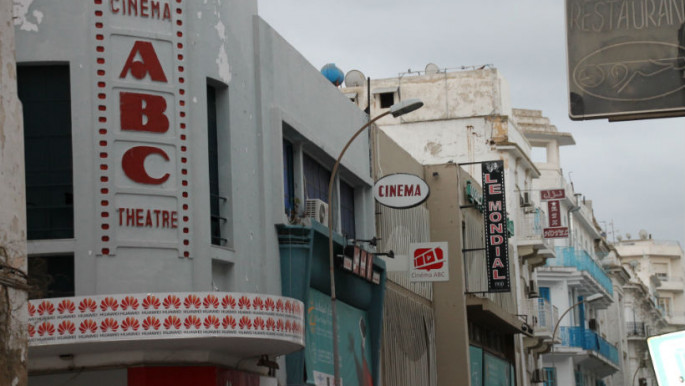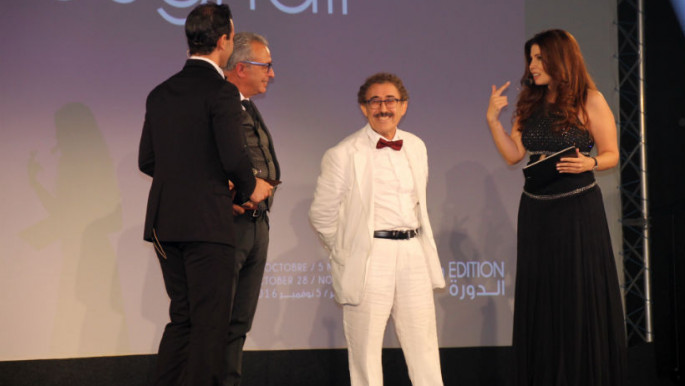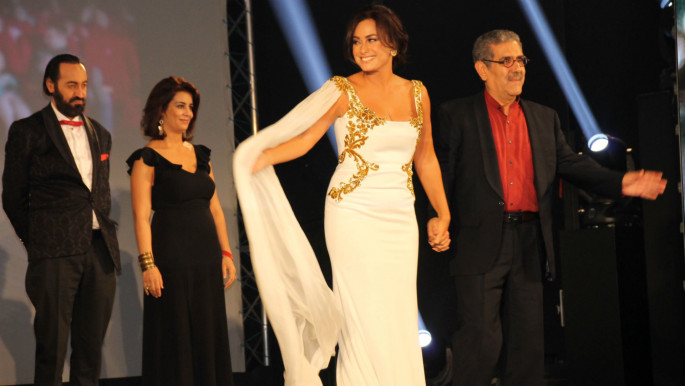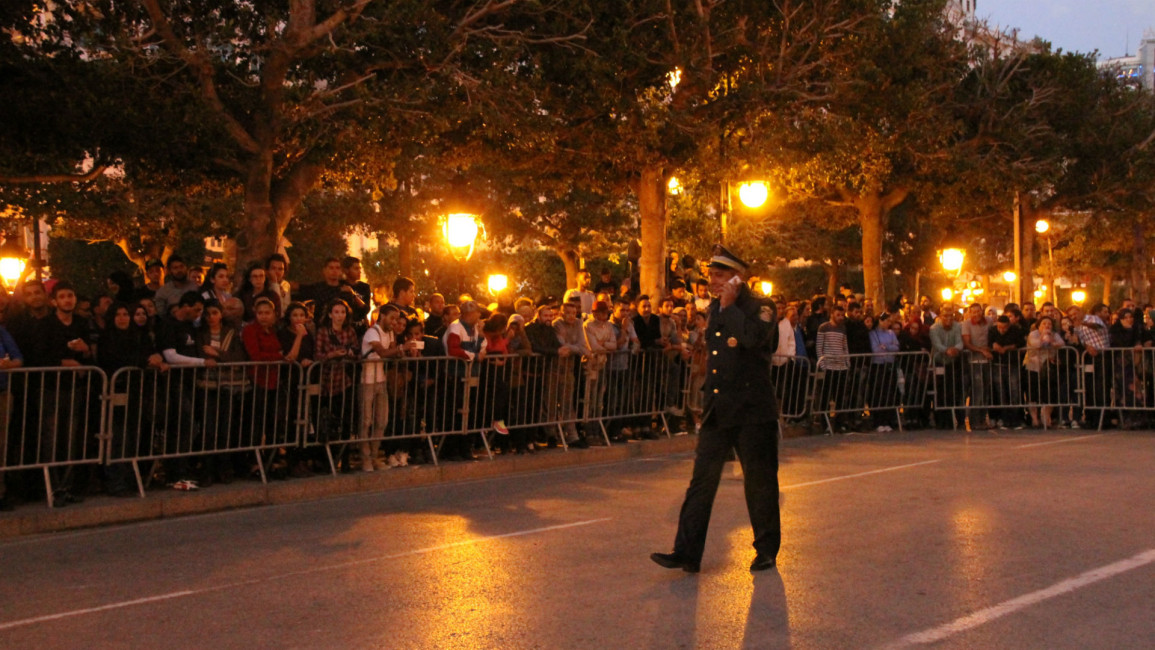
The red carpets and silver screens of Carthage
I arrive in Tunis after 22 years away. Once again, as in 1994, the city will unfold for me through the somewhat surreal lens of the Carthage Film Festival, an extraordinary happening now in its 50th year.
The love-child of pan-Africanism and cinema engage, I first encountered this festival when we were both in our twenties and full of enthusiasm. Now we are middle-aged and world weary, or at the very least a little tired of "revolution".
Post-Jasmine Spring ennui now hangs in the air as thick as the Tunis smog, as Islamism and economic crisis replace old dictatorship-era bogeymen. But these are not enough to dampen Tunisians love of cinema - or their right to party.
The night before the official opening, jet-lagged masses from all around the globe - though, in fairness, mainly from the Middle East and French-speaking Africa - hang in the lobby of the aptly named Hotel Africa, a towering monolith on Habib Bourguiba (the "father of the nation") Boulevard, drinking Tunisian beer and chatting.
There used to be a cinema next door, but it closed down after Salafists stormed the place a few years ago - enraged by Nadia El-Fani's Ni Dieu Ni Maitre that dared to criticise the hardliners.
A friendly pianist in the lounge plays standards on an electric keyboard, while aging Egyptian film star Jamil Rateb - here for a special 50th anniversary retrospective - is wheeled into the lobby by a handsome assistant. A photographer wearing a fez and sporting an old-fashioned flash-bulb camera takes portraits of wannabe actresses and festival illuminati, as a budding starlet and her transsexual friend sing Non, Je Ne Regrette Rien enthusiastically and off key.
Outside, a group of Tunisian young people sing songs about hope, freedom and a revolution yet to be fully realised.
Over dinner I meet a filmmaker who has fashioned a sort of Chadian Taxi Driver, as well as the son of Egyptian filmmaker Tewfik Salah who was "an old school chum of Omar Sharif". He appears in a film by Tunisia's Mohammed Chalouf about Tahar Cheria - who founded this festival when African cinema was still seen as a political act.
I return to a hotel the festival has kindly arranged named "The White House" in an odd nouveau-riche area on the edges of old Tunis. I discover it is next to an all-night disco across from my room at a gleaming new "business hotel".
 |
A budding starlet and her transsexual friend sing Non, Je Ne Regrette Rien enthusiastically and off key. |  |
I spend the night slightly shell-shocked, reading the latest Amnesty International report about human rights abuses in post-revolutionary Tunisia, as the disco blasts Arabic dance music mixed with random 1980s hits including Big in Japan. The music finally ends - just as the call to dawn prayer begins from a minaret on the other side of my hotel.
 |
|
| Tunis has long been a hub of north African cinema [Hadani Ditmars] |
The next day I discover that the Tunisian telephone number I spent an hour waiting in line to purchase has been blocked, and that my internet is intermittent.
I fear I have been abandoned by festival staffers, who, overwhelmed by the 500 guests attending from around the world, work out of a cramped smoke-filled room on the second floor of the Hotel Africa, a 20 minute walk - or 30 minute taxi ride in traffic - away.
But suddenly at 4pm, I receive a call from an organiser telling me to be downstairs in half an hour to be driven to the Hotel Africa for a special red carpet event.
I quickly don my best festival outfit and an hour later am standing in front of the Hotel Africa between an overflowing lobby of film-makers, starlets and producers, and a crowd of excited young people, kept at bay by police and metal barriers, chanting the names of their favourite stars.
The restrictions on freedom of assembly I read about in the Amnesty report don't seem to apply to cinephiles.
 |
When a terrorist attack occurred the day before the festival last year, it actually boosted attendance, as Tunisians went to the movies in a show of defiance and solidarity. |  |
In a frenzy of security concerns, backed up traffic and general chaos, we all stand around for two hours awaiting special transport to the palais du congress where the opening film Fleur D'Aleppo - about a young Tunisian who heads to Syria as a jihadist only to have his mother follow in an effort to save him - is to be screened.
But any imminent danger will apparently be a boon to audience numbers, if last year's festival is any indication. When a terrorist attack occurred the day before the festival last year, it actually boosted attendance, as Tunisians went to the movies in a show of defiance and solidarity.
| Article continues below photo |
 |
| Veteran Tunisian film-maker Ferid Boughedir was honoured at the festival [Hadani Ditmars] |
By the time all the A-listers have been transported in slick black cars to the palais, and the rest of us bussed in, we have missed the prime minister's speech. But I do catch Abderrahman Sissako (of Timbuktu fame and now head of the jury for feature films) saying the festival is about "beauty" and for "the youth of Africa", as well as a special prize given to veteran Tunisian film-maker Ferid Boughedir who jokes that his death must be imminent as "these kinds of awards are only given to you when you're about to croak".
After the film, which won audience cheers when star Hind Sabri pulled a Clint Eastwood-style machine-gun attack on a group of dastardly Daesh types, we retreat to a party tent bathed in purple light, and full of more pulsating disco music.
 |
|
| Hind Sabri starred in the festival's opening film, Fleur D'Aleppo [Hadani Ditmars] |
Next, we are transported to a resort near the sea for a larger-than-life party where women in miniskirts and leopard print sing 1990s hits while the beautiful people quaff champagne and guzzle canapés.
I sit with Syrian film-maker Mohammed Malas, who has just flown in that morning from Damascus, and Michel Khleife, who has arrived via Ramallah. For a moment the drum machine sounds like machine-gun fire and the bassline like a barrel bomb.
We are soon whisked away for the drive back to Tunis, as Khleife recounts the plot of his next film, about an Italian medical volunteer who adopts a Syrian refugee.
But before he can deliver me back to the hotel/disco emporium, our taxi driver is stopped by police and told he must take the long way home for security reasons. We drive past the French embassy, replete with sand bags and concertina wire, a tank and a few soldiers - there, says the driver, since the last election. He tells me he earns 150 pounds a month and can barely make ends meet.
I arrive back at my hotel, just as the disco next door starts cranking up the tunes. Tonight, Tears for Fears' Mad World at a particularly distorted level of amplification is a favourite. "How was the party?" asks the young night-desk man, smiling.
Follow Hadani Ditmars on Twitter: @HadaniDitmars



